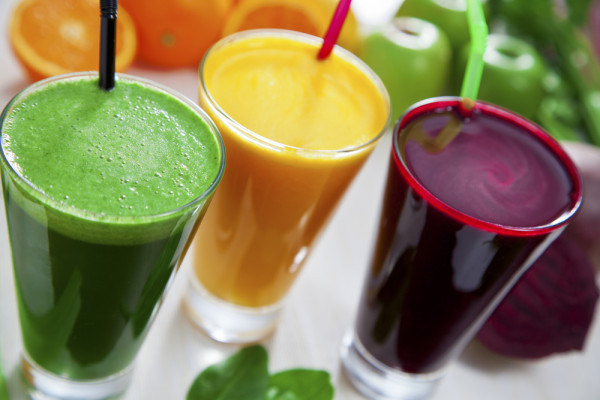I’ll be the first to admit that a glass or bottle of fresh juice is a delicious treat. I’ve been known to order a green juice after yoga class or a beetroot juice before bootcamp. In fact I’ve even followed 1-day juice fasts with both Blueprint Cleanse and Cooler Cleanse.
But I’ve long wondered just how healthy the juicing cleanse trend was. After all, once you strain away the healthy fiber of fruits and veggies you’re left with a lot of nutrients (pro) and also a lot of sugars (con). People claim to feel lighter and “detoxed” after drinking these fresh blends, but regular juicing never sat right with me. After all, nutritionists regularly steer clients away from juice because of its high concentration of sugars and calories, recommending whole foods like salads and pieces of fruit instead. Why would a diet of just juice be good when a glass of juice is often considered bad?
When I read a recent Opinion piece in the New York Times, about how Jennifer Berman’s health habits—including juicing—were having the opposite affect, I wasn’t all that surprised.
Per Berman:
I went to the dentist, who said I had five cavities and asked if I snacked on candy and sodas all day long. I was insulted. Indignant. What did he take me for? No, I answered. I don’t eat sugar and drink only fresh vegetable juices… and filtered water with lemon.
“You’d be better off with chocolate and cola,” he said. Apparently the natural sugars in fruit and vegetable juices can cause decay, and lemon, though high in vitamin C and bioflavonoids which may prevent cancer, had eroded the enamel that protected my teeth.
Yikes!
A few days later, I saw this infographic, which also recommends against regular juicing. Only time will tell if this trend is here to stay, but if you’re an avid juicer, it’s probably best to use toothpaste with fluoride!
Infographic courtesy of pritkin.com.
Also Read:
Popular Cleanses and Detox Diets: Healthy vs. Hype
Beginner’s Guide to Juicing: Benefits of Fresh Juice
The Dangers of Juicing for Quick Weight Loss


